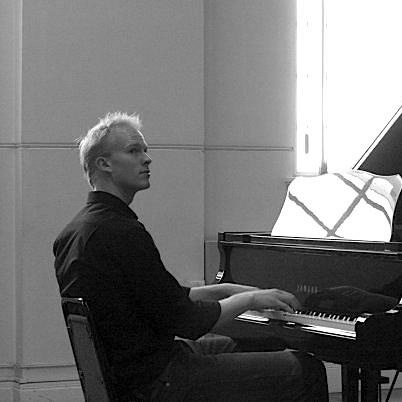
MY STORY
Until age 17, I was an average music student. Despite having all the passion in the world, my music grades only ranged between B’s and C’s. I even remember the embarrassment of having to retake one music exam in order to pass the year. I lacked confidence, felt scared to raise my hand in class, and the music I was making did not resemble what I heard inside.
But at age 18 I started working out songs by ear – simple Christmas carols to begin with, progressing to pop songs and TV theme tunes. As my ear developed, so did every other musical skill – my knowledge of music theory, my ability to compose and find the actual notes and chords I was imagining, I could improvise with confidence, and play with other musicians.
Very quickly, within 3 – 4 months, my confidence grew, and I soon became the top student in ear training tests. Working out songs by ear became ‘my thing’, and I went on to graduate with a first class music degree (the equivalent of a 4.0 GPA), and gained my masters degree in music composition – which I attribute entirely to developing relative pitch. Had I not worked on training my ear first, none of this would have happened, and I’d still be frustrated, and unable to channel my passion in a focused way.
Once I learned to play by ear, so many things improved:
I could enjoy music on a deeper level. I found myself immersed in music daily, every time I heard music. I knew which notes and chords were being played, I knew what each musician was thinking, and could predict what they would play next. I could understand the music, and the composer’s thought process, and of course, could still enjoy the music emotionally as I did before.
It felt like I was practicing music all the time. Anytime I was at a coffee shop, restaurant, bar, night club, watching a movie, when someone’s ringtone went off, or when a car passed playing music – I found a new part of my brain working every time I heard music played – and not just when I was at my instrument. I’ve even gone months without playing my instrument, yet feel completely active in music because I don’t rely on my instrument to practice – listening is a workout for me.
My ear became my biggest teacher. Although I’ve had some great music teachers, and have read many theory books, the VAST MAJORITY of what I know is from transcribing music by ear – listening and observing the norms of any genre, from one song to the next. But this only possible when you can understand what you’re hearing.
I became confident in my own judgement of music. I could distinguish good music from bad music (like a wine connoisseur does for wine). I could hear what level a composer was at, just by listening to their music – I could tell what they were thinking – I knew when they hadn’t quite found the right chord, or when they didn’t know what key they were in – and so on. I could critique my own composition ideas – I knew which ones were interesting and worth pursuing, and I knew which ones were cliche and average.
my successes
At University, I studied music theory (including harmony, counterpoint, 18th century classical music, orchestration) and eventually specialized in composition for film which I studied for my master’s degree.
As a composer, I’ve had works performed by the London Chamber Orchestra, the New London Wind Quintet, and Kuljit Bhamra’s ensemble – at venues including London’s National Gallery, St John’s Smith Square, and the Royal Albert Hall.
And as a performer, I am active in orchestras (playing trumpet), big bands (playing jazz piano), and various ensembles with friends and family. In all of these areas, I rely on my ear more than any other skill.
replicating my success for others
Nobody was able to teach me ear training, but by perseverance I discovered a way to do it successfully for myself.
I’ve now structured that very learning process into a unique set of videos – to make this level of success available to all musicians.
I want you to share my path, so that you can enjoy what I experience daily: